Episode 1785: Confidence of Traditional Catholics and the Apologetic Novus Ordo Catholics
There was a book written called "Finding Confidence in Times of Trial: The Letters of St. John of Avila" is a collection of personal letters written by the 16th-century Spanish mystic and spiritual director, St. John of Avila. These letters were addressed to individuals facing various challenges in their lives, ranging from spiritual anxieties to everyday difficulties. Through these letters, St. John offers insightful guidance and encouragement, drawing on his deep understanding of Christian faith and human nature. I eventually want to provide a series on these writing but I am bringing it up to somewhat make the point of confidence in the faith.
One of the major themes is Perseverance through Trials: St. John recognizes that trials are an inevitable part of life and encourages his readers to view them as opportunities for spiritual growth. He emphasizes the importance of perseverance, patience, and a positive attitude in the face of challenges.
But the big question is confidence. Do we as Catholics have confidence when we either speak of our faith or practice it? Well that depends. Let me explain something I have noticed since my conversion to the traditional catholic faith from the Novus Ordo faith in the year 2000.
Well first of all, I had to have confidence to make the move. Why, because if my family didn’t transition with me I better know what I am doing to make the break worth it. After all I lead my children in the Novus ordo until that time and so they were relying on me for the faith.
As I went through the years of almost unlearning all I was taught in the novus ordo and going back to the true faith of the Catholic church I noticed that I was somewhat apologetic for my faith. I wanted to make everyone happy or at least feel good. That is why I later called the novus ordo church the Happy Church. The laughing priests the accepting of almost everything and really never setting down a firm line. That was one of my greatest challenges. I had to stop glad handing the faith and really learn it and really believe in what I was learning or how could I either teach it or evangalise it. In short, stand the line whether it brings good or bad.
Now this leads me to this episode and I promise I will return to teaching episodes and get away from all these Op-Ed’s.
Embracing Tradition: Confidence of
Traditional Catholics and the Apologetic Nature of Novus Ordo Catholics
Catholicism, with its rich history and diverse traditions, has experienced a noticeable divide in recent times between Novus Ordo Catholics and Traditional Catholics.
One striking aspect of this division is the difference in the expression of faith – where traditional Catholics often exhibit a firm confidence in their beliefs, while some Novus Ordo Catholics not all seem more apologetic and are now being encouraged to strengthen their faith. This episode explores the factors contributing to this distinction and the efforts of traditional Catholics to guide their fellow believers toward a deeper understanding of their faith. I was having a conversation with a friend and I asked her to try being less apologetic for her Catholic faith. Take a position and deliver it with confidence and this is what led to this episode.
The Novus Ordo Experience:
Novus Ordo Catholics, often associated with the post-Vatican II reforms, may find themselves in a position of having to explain and defend their faith more frequently. The changes brought about by the Second Vatican Council aimed at making the Catholic Church more accessible to the modern world, but in doing so, some argue that it led to a dilution of certain traditional practices. This shift has led some Novus Ordo Catholics to feel the need to justify their faith in the face of criticism or skepticism.
The Traditional Catholic Confidence:
On the other hand, traditional Catholics, who adhere closely to pre-Vatican II practices, often exude a sense of confidence in their faith. They find solace and strength in the timeless rituals, Latin Mass, and doctrinal stability that characterize their form of Catholicism. This confidence is rooted in the belief that the traditions they uphold have stood the test of time and are a direct link to the Church's historical foundations.
Teaching and Guiding Novus Ordo Catholics:
Recognizing the struggles faced by Novus Ordo Catholics in confidently expressing their faith, traditional Catholics are stepping forward with a spirit of fraternity. Instead of fostering division, they aim to bridge the gap by encouraging a deeper understanding of the rich traditions that form the core of Catholicism.
Education on Tradition:
Traditional Catholics are eager to share their knowledge and understanding of the historical significance of various traditions. They emphasize the importance of embracing the richness of the Catholic heritage, fostering a sense of continuity that extends beyond the changes introduced by Vatican II.
Mentorship and Community:
Traditional Catholics create spaces for Novus Ordo Catholics to engage in meaningful conversations and build a supportive community. This mentorship allows for an open exchange of ideas, addressing doubts, and providing guidance on how to integrate traditional elements into their spiritual journey.
Encouraging Liturgical Exploration:
Traditional Catholics invite Novus Ordo believers to explore the beauty of the Latin Mass and other traditional liturgical practices. By experiencing these rituals firsthand, Novus Ordo Catholics can develop a deeper appreciation for the continuity and reverence embedded in these age-old traditions.
Embracing Rituals and Symbolism:
Traditional Catholics place significant importance on rituals and symbolism within their faith. These rituals, often conducted in Latin, carry a sense of transcendence and mystery. By encouraging Novus Ordo Catholics to participate in and understand the deeper meanings behind these rituals, traditional Catholics aim to instill a profound connection with the spiritual aspects of their faith.
Stability in Doctrine:
Traditional Catholics often highlight the stability and clarity found in pre-Vatican II doctrines. The unchanging nature of these doctrines provides a solid foundation for their faith, contrasting with the perceived ambiguity that some Novus Ordo Catholics might encounter. Traditionalists guide their fellow believers to explore the richness of Catholic teachings, emphasizing the timeless truths that remain unchanged.
Resilience in Persecution:
Traditional Catholics point to the historical resilience of their faith during times of persecution. By understanding the challenges faced by early Christians and the unwavering commitment to their beliefs, Novus Ordo Catholics can draw inspiration and strength in facing contemporary challenges to their faith. This historical perspective helps build a sense of resilience and determination.
Rootedness in Tradition as a Response to Modernity:
Traditional Catholics argue that the embracing of tradition is not a rejection of modernity but rather a response to it. In a rapidly changing world, they find stability and answers to life's questions in the timeless wisdom of Catholic traditions. By guiding Novus Ordo Catholics to see tradition as a source of wisdom and guidance, traditionalists hope to foster a more grounded and confident faith.
Encouraging Personal Devotion:
Traditional Catholics often emphasize the importance of personal devotion, such as regular prayer, Eucharistic adoration, and devotion to saints. By incorporating these practices into their daily lives, Novus Ordo Catholics can deepen their spiritual connection and find strength in the personal relationship they develop with God.
The relationship between Novus Ordo Catholics and their traditional counterparts should ideally be one of mutual respect, understanding, and unity within the broader Catholic community. Here are some perspectives on how Novus Ordo Catholics might approach their traditional counterparts in the faith:
Respect for Tradition:
Novus Ordo Catholics should recognize and respect the diversity within the Catholic Church. The various expressions of faith, including the traditional practices, contribute to the richness of the Church's heritage.
Openness to Tradition:
Rather than viewing traditional practices with skepticism, Novus Ordo Catholics can approach their traditional counterparts with an open heart and mind. Exploring the historical significance and beauty of traditional liturgy, rituals, and devotions can deepen their understanding of the broader Catholic tradition. In
Seeking Understanding:
Novus Ordo Catholics may engage in conversations with their traditional counterparts to understand the reasons behind their adherence to pre-Vatican II practices. Learning about the historical context, theological perspectives, and personal experiences of traditional Catholics can bridge gaps and dispel misconceptions.
Appreciation for Tradition:
Novus Ordo Catholics can develop an appreciation for the beauty and depth found in traditional practices. Engaging in traditional liturgy or learning about the significance of certain rituals can provide a broader perspective on the Catholic faith and enhance spiritual growth.
Avoiding Stereotypes and Generalizations:
It's crucial for Novus Ordo Catholics to avoid making sweeping generalizations or holding stereotypes about their traditional counterparts. Recognizing the tradition was the church up until the mid 1960’s. You just cant dismiss a faith that most of the saints and great writers of the church were in and created.
It's important to understand certain factors may contribute to the perception that traditional Catholics are more well-versed in their faith, while some Novus Ordo Catholics may be perceived differently:
Liturgical Changes:
The post-Vatican II changes introduced in the Novus Ordo Mass aimed at making the liturgy more accessible to the laity. Some argue that, in simplifying the liturgy, there might be a perception that there is less emphasis on the depth of theological understanding. Traditional liturgy, on the other hand, often involves more elaborate rituals, which some believe contribute to a deeper engagement with the faith.
Emphasis on Tradition:
Traditional Catholics place a strong emphasis on preserving and practicing pre-Vatican II traditions. This emphasis on tradition often involves a commitment to studying and understanding the historical and theological aspects of the faith. The desire to maintain these traditions might lead traditional Catholics to delve more deeply into their faith.
Theological Stability:
Traditional Catholicism is often associated with a perceived theological stability, as adherents follow pre-Vatican II doctrines that have remained largely unchanged. This stability can create an environment where there is a greater focus on theological study and understanding.
Cultural and Community Influences:
The tight-knit nature of some traditional Catholic communities may foster an environment where individuals are encouraged to study and discuss theology together. This communal approach to faith may contribute to a perception of increased knowledge and understanding among traditional Catholics.
Individual Variation:
It's crucial to recognize that individuals within both Novus Ordo and traditional Catholic communities vary in their commitment to learning and understanding the faith. There are undoubtedly Novus Ordo Catholics who are deeply knowledgeable about their faith and traditional Catholics who may not engage in extensive theological study.
Access to Resources:
The availability of resources, such as books, online materials, and educational programs, can impact one's ability to delve into theological study. Traditional Catholic communities may have specific resources that cater to their theological interests.
It's important to approach discussions about the depth of understanding in different Catholic communities with sensitivity and an understanding that individual experiences and practices can vary widely. Encouraging all Catholics, regardless of their liturgical preference, to engage in ongoing learning and spiritual growth can contribute to a more informed and united Church.
Novus Ordo Catholics should approach their traditional counterparts with an attitude of respect, openness, and a willingness to learn. Embracing diversity within the Catholic Church can lead to a more united and vibrant faith community.
The confidence of traditional Catholics in their faith is rooted in a deep appreciation for the richness of Catholic traditions, stability in doctrine, historical resilience, and a response to the challenges posed by modernity. Rather than perpetuating division, traditional Catholics extend a hand of guidance and support to Novus Ordo Catholics, encouraging them to explore, learn, and embrace the profound beauty found in the timeless traditions of the Catholic Church.
Conclusion:
The division between Novus Ordo and traditional Catholics need not be a source of discord. Traditional Catholics, instead of standing in judgment, are extending a welcoming hand to their fellow believers. By fostering understanding, providing education, and building a sense of community, they hope to empower Novus Ordo Catholics to embrace their faith with confidence and vigor, ultimately strengthening the unity of the Catholic Church.
-
 27:43
27:43
CatholicReboot
3 months ago $0.07 earnedEpisode 1907: Embracing Lent: A Traditional Catholic Perspective
123 -
 56:45
56:45
CatholicReboot
4 months ago $0.03 earnedEpisode 1823: What is Sensus Catholicus?
97 -
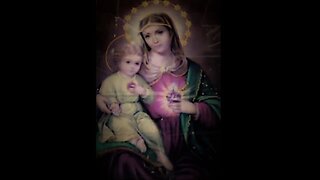 28:12
28:12
Sancta Sedes Apostolica - The Holy Apostolic See
2 months agoCondemnation of the Novus Ordo sectarian “liturgy” and heretical fabrications...12 March, 2024 AD
20 -
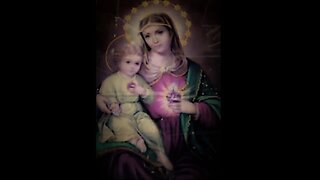 36:46
36:46
Sancta Sedes Apostolica - The Holy Apostolic See
1 month agoDecree of the Holy See on the new versions of the Apostolic Constitution Sacramentum Ordinis...11 April, 2024 AD
28 -
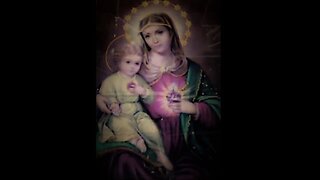 21:37
21:37
Sancta Sedes Apostolica - The Holy Apostolic See
20 days agoSermon of His Holiness Pope Jacobus I on Dominica within the Octave of the Ascension...
19 -
 5:13
5:13
Decoding God's Time Machine
2 months agoWhy The Catholic Church is the True Church, Part 2: The Sola Scriptura Heresy
13 -
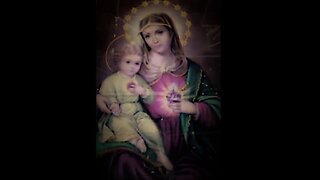 1:10:26
1:10:26
Sancta Sedes Apostolica - The Holy Apostolic See
4 months agoThe REAL Pope speaks - the Novus Ordo Sectarians, all heretics and suchlike enemies of the Catholic Church...26 January, 2024 AD
33 -
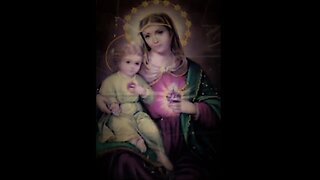 53:45
53:45
Sancta Sedes Apostolica - The Holy Apostolic See
2 months agoInvalid Sacrament of Penance of the heretics...The Holy See Canons of ANATHEMA...18 March, 2024 AD
18 -
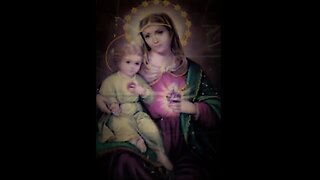 1:04:34
1:04:34
Sancta Sedes Apostolica - The Holy Apostolic See
25 days agoThe perverted souls of all heretics are without God's mercy incapable of conversion and recovery - 7 May, 2024 AD
37 -
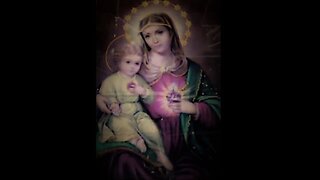 22:09
22:09
Sancta Sedes Apostolica - The Holy Apostolic See
23 days agoSermon of His Holiness Pope Jacobus I on the Feast of the Ascension of Christ Our Lord...9 May, 2024 AD
16